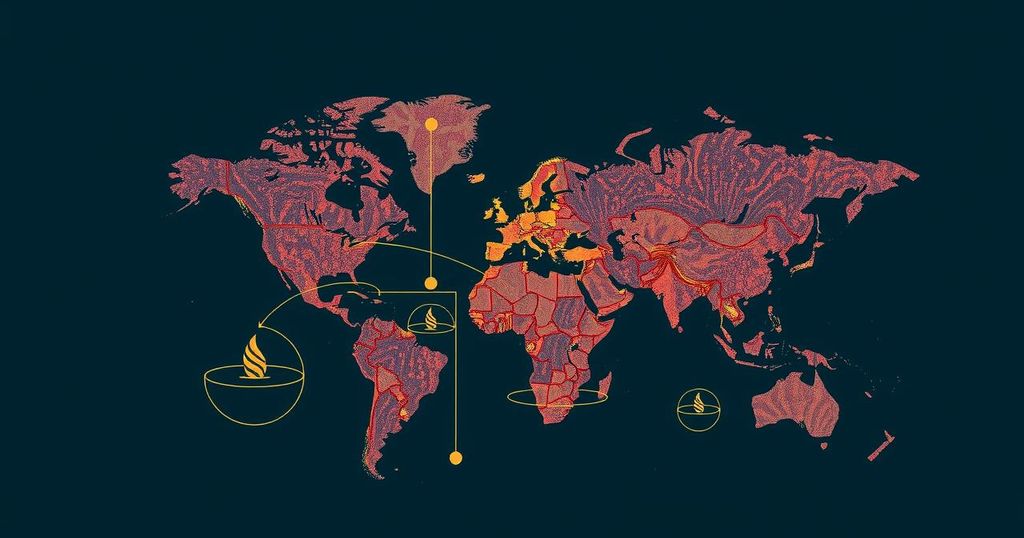The COP29 climate conference in Baku revealed frustrations from poorer nations regarding a $300 billion annual climate funding commitment from wealthy countries, signaling significant political shifts. Although this pledge represents an increase, activists argue it is insufficient compared to the estimated $1.3 trillion required annually to combat climate change. The conference emphasized a practical approach and the critical role of multinational development banks in achieving climate funding goals.
The COP29 climate conference in Baku has sparked significant discussions pertaining to wealthier nations’ commitment to allocating $300 billion annually for climate finance. However, this figure has been met with disappointment from poorer countries that deem it insufficient, highlighting a shift in global political landscapes in climate discussions. This conference took place on the backdrop of mounting global geopolitical challenges, including the rising influence of conservatives in elections across Germany, Canada, and Australia, who may not prioritize climate issues as fervently.
While officials from Germany and the European Union presented a united front in championing the cause of climate action, they also emphasized a pragmatic approach regarding contributions from historical polluters. European Climate Commissioner Wopke Hoekstra stated, “We live in a time of truly challenging geopolitics, and we should simply not have the illusion”, underscoring the complex political atmosphere surrounding climate finance.
The proposed increase in climate funding aims to transition from a previously established $100 billion annual target to $300 billion by 2035, yet activists stress that this figure falls short of the estimated $1.3 trillion per year needed to effectively address the climate crisis. Mariana Paoli from Christian Aid labelled the pledge as “creative accounting”, suggesting it lacks transparency regarding the sources of funds and heavily relies on loans rather than grants.
Furthermore, discussions highlighted the necessity of utilizing multinational financial institutions to fulfill financing goals, with expectations that these institutions will contribute significantly towards the target. Notably, Melanie Robinson of the World Resources Institute recognized this reliance, emphasizing that these banks are crucial in bridging financial support with impactful climate action on the ground.
COP29 indicates a pivotal moment in climate finance discourse, raising questions about commitments from affluent nations and the repercussions of hesitance to financially assist poorer states grappling with climate impacts. Overall, the outcomes stress the urgent need for comprehensive funding solutions, coupled with political will to effect substantial change in combating climate change.
The article centers on the COP29 climate conference, set against a backdrop of significant political changes in major countries that could affect the future of climate policies. Rich nations, particularly in the West, have made a somewhat controversial commitment to increase climate finance, which underscores tensions between developed and developing nations regarding climate responsibilities. Furthermore, the shifting political landscape, characterized by conservative candidates more skeptical of climate investments, raises alarms about the continuity of global climate commitments. This situation requires navigating complex geopolitical contexts while addressing urgent climate needs.
In conclusion, the discussions at COP29 highlight critical shortcomings in proposed climate finance commitments from wealthier nations, particularly under the challenges posed by changing political dynamics and global crises. Activists call for transparent and accountable funding methods to support developing nations, emphasizing the urgent need for significant, consistent climate financing. The reliance on multinational institutions illustrates a potential path forward, yet the overall sentiment reflects a growing demand for sincerity and efficacy in international climate cooperation.
Original Source: www.france24.com






